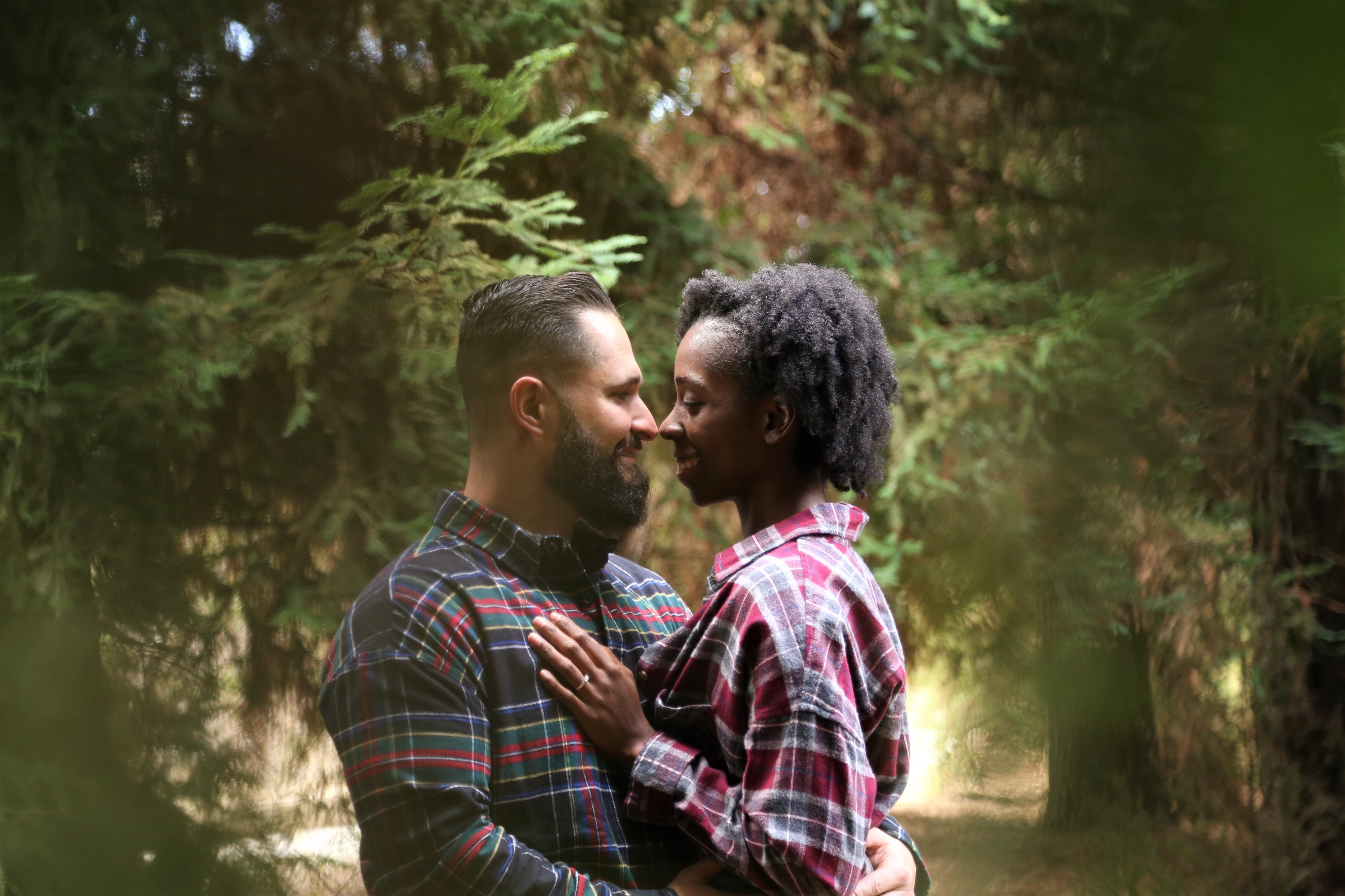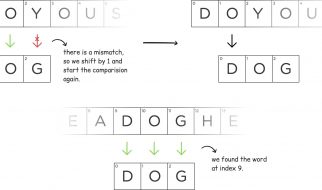There?s nothing wrong with you if polyamory isn?t your jam, relationship structures are plentiful
 Photo by Jose Escobar on Unsplash
Photo by Jose Escobar on Unsplash
Like gender and sexuality, relationship orientation lies on a spectrum. Instead of thinking of it as a straight-line continuum, I think of it as a sort of amorphous blob, on the surface of which lie an unlimited number of possibilities.
Humans love to construct falsely-binary systems, but the truth is, relationship styles are not binary. Polyamory and monogamy both encompass relationship models and structures in infinite iterations. The things that happen within these relationships may be similar. Discussing boundaries and levels of comfort with specific activities and interactions can happen within all types of relationships. For example, some married couples are okay with snuggling with someone other than their spouse, and some are not.
While some folks believe that polyamory is superior to, or more natural than, monogamy, I don?t buy it. I know lots of people who are very happy and satisfied in monogamous relationships, and that?s great! Polyamory is not for everyone. Breaking through the ingrained ideas about monogamy, soulmates, and finding your one and only can be difficult. Most people face a fair amount of conscious deprogramming when they decide to explore polyamory. So how do you know whether you?re in that re-learning stage or just not suited to polyamorous relationships at all?
In my first year of dating poly, I met Alex. When our eyes met, there were real-life sparks, so I tracked him down through a friend and contacted him. We made a date and our chemistry was just wicked. I could feel that both of us were super open and deep and passionate and we had these feelings and we were both trying not to fall into them, but the electricity between us made it hard.
About a month into it, I had to tell him that the level of togetherness we had been having was just not sustainable for me. The NRE was strong and we both wanted to spend time together, but it was too much for me. At first it seemed like he got it, and it was okay. But he was unsure of how to deal with sharing me with my already established partner. I would purposely bring up my other partners to see how he reacted, because I was trying to gauge his ability to be in an open relationship.
Intellectually, he thought it made sense. In reality, though, his heart wasn?t in being poly.
We talked about just letting our thing be what it was, the phrase ?without expectations? once again slipping from my lips. He was new to poly, newer than I was, and seemed to be coming at it from a completely different angle. Intellectually, it made sense to him, and he knew he wasn?t in a place for something ?serious.? In reality, though, his heart wasn?t in being poly. He wanted a one, someone to be there just for him, to get wrapped up in, spend all his time with, and be enamored with. That is a wonderful thing for some people, but it?s not for me.
Eventually I had to break things off with him. It just wasn?t working for either one of us. We were both frustrated- me because I felt I was being cruel every time I talked about huge chunks of my life, and him because he wasn?t having his needs fully met. I was polyamorous, but Alex wasn?t.
Not everybody has the experience I did, where learning there?s a word for the things you?ve been feeling is a huge relief. If you?re struggling to decide whether polyamory is the right choice for you, here are some things to consider.
What brought you to polyamory in the first place?
Some people discover polyamory because they?re looking. They?ve struggled in monogamous relationships, getting antsy, feeling like something wasn?t quite right, or like all of their relationships came with expiration dates. Sometimes they felt like failures because they had the urge to cheat, or did cheat, and couldn?t understand why they weren?t satisfied with one partner like they were ?supposed to? be.
On the other hand, some people never gave non-monogamy a second thought until a committed partner broached the subject. It was not necessarily something they wanted for themselves, but something they were willing to try to make someone they cared about happy. This is a great attitude to have, but it also has limits. At some point, if it?s not working for both partners, re-evaluation is necessary.
Are you feeling transitory discomfort, or growing emotional pain?
This can be a hard one to suss out, because for many people there are bumps and bruises that come with entering the waters of polyamory. Neural reprogramming is tough, and trying to undo decades of conditioning that tells us loving more than one person romantically is wrong can be really uncomfortable. Many poly couples do a sort of two-steps-forward-one-step-back dance as they adjust to a different model of relating to one another.
Most of the time, this discomfort also comes with happy moments. If you?re finding that all you are experiencing is pain and misery, that those moments of joy and excitement just aren?t there, it may be because you?re more comfortable with some form of monogamy. Are the barriers preventing you from even taking the two steps forward, and you?re just feeling stuck? It?s okay to evaluate those feelings and whether you?re moving forward or standing still.
Do you crave stability, patterns, and same-ness?
Some people are much more comfortable with life when things are known. We?ve all met someone who has a schedule and sticks to it. They know that Monday night is meatloaf night, they work out on Tuesday, Thursday, and Sunday, and date night is every other Saturday. They thrive on routine and stability, and are happy to stick with it until they die.
Human relationships are complicated, and adding more people to the mix does not reduce those complications.
If this is you, polyamory may not be for you. Human relationships are complicated, and adding more people to the mix does not reduce those complications. In fact, it raises the likelihood of change and unexpected circumstance exponentially. If you?re finding that non-monogamy is just too much of the unknown, it?s probably not the best relationship model for you.
Are your needs being met?
When I was in a relationship with Alex, I could tell that I was not meeting all of his needs. He wanted more attention one-on-one than I could give him. This doesn?t mean that he was being unreasonable, but we had a mis-match in terms of what we were willing to give. There?s someone (or someones) for everybody, and just because I?m not willing to ask someone to be my one and only, or to be that for someone else, doesn?t mean it?s not a valid relationship model. The important thing is that the people in the relationship agree and have similar expectations and desires.
You shouldn?t have to force yourself to be something you aren?t for the sake of a relationship. There?s a big difference between being flexible and accepting something that makes you unhappy and prevents your basic needs from being met. Love is not about asking someone to meet your needs over their own, it?s about making sure everyone is being fulfilled.
As redditor BlueBerryJazz put it, ?Suffering isn?t a virtue, and I wish more relationship advice centered on the importance of relationships actually enriching your life.?
Do you find the idea of long-term polyamory exhausting?
There?s a common joke in the poly world that the hardest part about being poly is managing the calendar. Like most jokes, it has a little bit of basis in reality. Whether polyamory is a natural inclination or a choice, it requires a certain amount of effort to do successfully. If all of this just sounds like a lot of work to you, it might be a sign it?s not for you.
Pieces of the puzzle that could sound exhausting include getting to know new people, managing the calendar and logistics, and the increased communication required about just about everything. While many of these things can be adjusted to, it?s also valid for someone to prefer not to expend their energy that way.
What are your instincts telling you?
Nature gave us gut feelings for a reason, and we work really hard to push down and ignore those instincts. When I taught natural childbirth classes, the number one final piece of advice I always left my students with was to trust their instincts. This is your life. You know yourself, your mind, and your heart better than anybody else. If something doesn?t feel right, it?s okay to recognize it.
You don?t owe anybody an explanation about why you feel the way you do. If you prefer not to be in a relationship with more than one person at a time? That?s just the way you prefer it. As long as you?re open and honest about that with potential partners, you do you!
Even within polyamory, there are a variety of philosophies and relationship styles. For me, polyamory is just? who I am. It?s a part of my spirit, something that I didn?t realize for a long time but once I did, it fit like a glove. Figuring out that polyamory was something people really did was like watching a puzzle come together.
Some people are happy with multiple partners, some prefer one at a time. Other people can go either way with little fanfare. In her article, On the Non-Monogamy Spectrum, Kathleen Lloyd explains:
A little over three years after my husband and I opened up our 20-year monogamous marriage, I am still struggling to find where I fit into non-monogamy. I recently wrote about my discovery of the term ambiamory, a relationship orientation wherein the person can be perfectly happy being in a monogamous or polyamorous relationship, depending on the situation. After spending so much energy trying to decide if I was polyamorous or not, it was a liberating discovery to find that I don?t have to fit into either box. Polyamory isn?t for everybody, and that?s okay.
Boxes are for cookies and Amazon packages, not for humans! You are unique and complex, and your relationships needs may be nuanced, quirky, or typical. None of these is better than the others, they?re just different.
Relationships come in so many different forms that expecting one or two to be the only options is unreasonable. Some people, though not inclined to polyamory, are okay with their partner having other loves. Mono-poly relationships are just one more point on that amorphous relationship blob I talked about earlier. Or you may be okay with facets of an open relationship, like exploring swinging together, but not as individuals.
There?s nothing wrong with you if polyamory isn?t your jam. It doesn?t mean that you?re mentally or emotionally weaker or less advanced. It just means you?re hardwired differently than I am. Relationship structures are plentiful. What really makes a relationship work is recognizing your own truth and finding a partner (or partners) who compliments it.
Don?t miss a thing! Sign up for my weekly newsletter here.
You might also enjoy?


